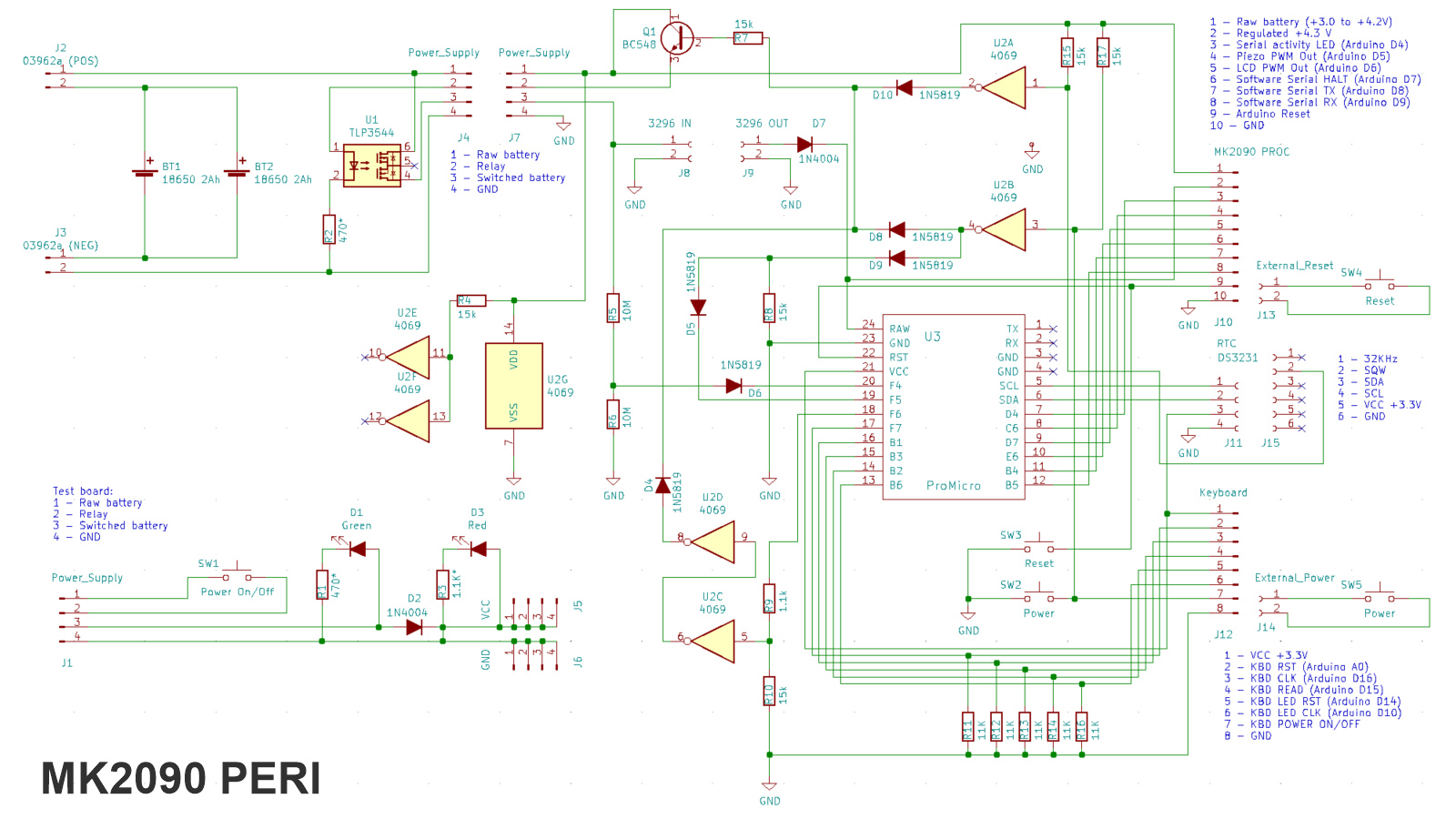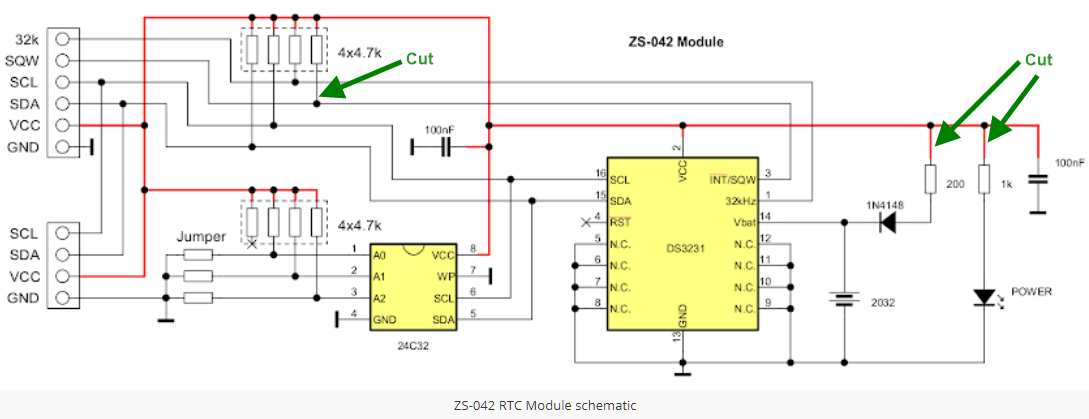Last two weeks I spent on hardware development. According to the requirements, the calculator should be able to keep precise time in DS3231 Real-Time Clock (RTC) and wake up from deep sleep at the predefined moment. The final schematics looks as following:

The wake-up signal is taken from the DS3231 SQW pin and send into a NOT element of 4069. The DS3231 is obtained in form of ZS042 breakout board - it is easier than soldering a surface mounted chip with many pins. The modifications on the ZS042:
(1) Mandatory - cut the top right leg of 4.7k 4-resistor assembly 1 - without it, the DS3231 will be able to keep the line up if VCC is off. Note that pin 3 (INT/SQW) is simply a MOSFET to GND - essentially an equivalent of a momentary switch to ground.
(2) Mandatory - remove 200 Ohm resistor in the battery charging circuit. Because the board is powered by VCC=3.3V, it is useless anyway, but may be a battery hazard if using with 5V supply.
(3) Optional - remove 1k resistor in the power LED (this reduces power consumption from 1.9 to 0.3-0.5 mA).

The chip programming magic is done earlier by Mike Yakimov - the author of https://github.com/myak555/Not_So_Tiny_Not_So_Basic - and available at https://github.com/ptravnik/Retro_CALC/tree/master/MK2090_Peripheral_Controller
#include <Arduino.h>
#include <Wire.h>
#include "RTCData.hpp"
//I2C Slave Address
#define DS3231_SLAVE_ADDRESS 0x68
// Default control - battery oscillator ON and Alarm 1 DISABLED
#define DS3231_CONTROL_DEF 0x04
// Default control - battery oscillator ON and Alarm 1 ENABLED
#define DS3231_CONTROL_ALR 0x05
// Default status - all clear
#define DS3231_STATUS_DEF 0x00
class DS3231_Controller{
public:
bool firstRun = true;
uint8_t lastError = 0;
uint8_t wakeupStatus = 0;
void begin();
bool isRunning();
void setDateTime( DS3231_DateTime datetime);
DS3231_DateTime getDateTime();
DS3231_Temperature getTemperature();
void setWakeUp(DS3231_Alarm alr);
DS3231_Alarm getWakeUp();
private:
uint8_t _getRegister(uint8_t address, uint8_t n=1, uint8_t *data=NULL);
uint8_t _setRegister(uint8_t address, uint8_t n, uint8_t *data=NULL);
};
 ptrav
ptrav
Discussions
Become a Hackaday.io Member
Create an account to leave a comment. Already have an account? Log In.